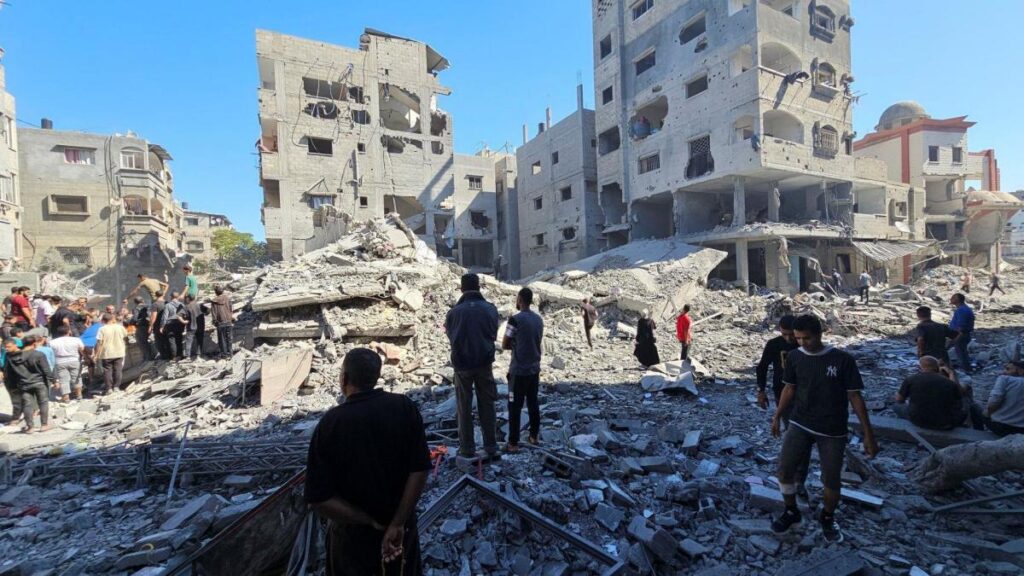The ongoing conflict between Hamas and Israel continues to escalate, exemplified by the recent air strike in Beit Lahia, Gaza, which resulted in at least 87 reported deaths and over 40 injuries according to the Hamas-run health ministry. Amidst the rubble of a decimated residential area, many victims remain trapped, highlighting the devastating impact of the ongoing violence. While Israel has expressed that the casualty figures provided by Hamas may be exaggerated, they confirmed the intent behind the strike as a “precision” operation targeting a Hamas military objective. The regional situation remains dire, with the Israeli military asserting that their increased bombardment aims to disrupt Hamas operations and prevent regrouping in northern Gaza.
As the violence escalates, UN officials, including Peace Process Coordinator Tor Wennesland, have condemned the plight of civilians caught in the crossfire, urging an immediate cessation of hostilities. Wennesland emphasized that no place is safe in Gaza, reiterating the necessity for humanitarian aid to reach those in need. He called for the protection of civilians and demanded the unconditional release of hostages held by Hamas. This humanitarian crisis has reached alarming levels, and he characterized the situation as a “nightmare” that must be addressed without delay.
Dr. Eid Sabbah, the director of nursing at Kamal Adwan Hospital in northern Gaza, provided further testimony on the repercussions of the Beit Lahia air strike, noting the extensive destruction of residential buildings and the acute number of casualties. With medical teams struggling to access the devastated areas due to ongoing strikes, the urgency for humanitarian aid and intervention is becoming critical. Dr. Sabbah appealed for an end to the siege impacting hospitals, warning of the potential irreparable harm to the civilian population if the conflict continues unchecked.
Israeli military operations have intensified since early October, particularly in the Jabalia area, where the dense urban environment complicates both military objectives and civilian safety. Reports indicate that humanitarian aid has almost entirely ceased, exacerbating the struggles faced by the population already suffering from violence and lack of essential services. The humanitarian landscape in Gaza has dramatically deteriorated, with international calls for intervention becoming increasingly frequent, as voiced by UN officials and humanitarian agencies. The dire statistics reveal that more than 42,603 people have perished since the onset of conflict, with countless others wounded, emphasizing the urgency for diplomatic solutions.
In a broader context, Israel has also targeted Hezbollah’s positions in Lebanon as part of a multi-front conflict. Recent air strikes aimed at Hezbollah’s command centers and weapons facilities further complicate the regional security landscape. This escalatory approach underscores the dangers of cross-border conflicts, especially following Hezbollah’s support for Hamas and continued rocket fire into northern Israel. Tensions have further heightened with reports of Israeli airstrikes resulting in Lebanese military casualties, a rare development that indicates the potential for broader regional conflict escalations.
As the situation evolves, the interconnectedness of actors involved—Hamas, Hezbollah, and their respective backers—presents a complex geopolitical challenge. Increased violence is creating an untenable humanitarian crisis in Gaza and surrounding areas, with international bodies calling for immediate action. The calls for an end to hostilities and a focus on humanitarian aid delivery grow louder, as the world watches the situation deteriorate further, signaling the urgent need for a political solution to bring lasting peace to the region.

